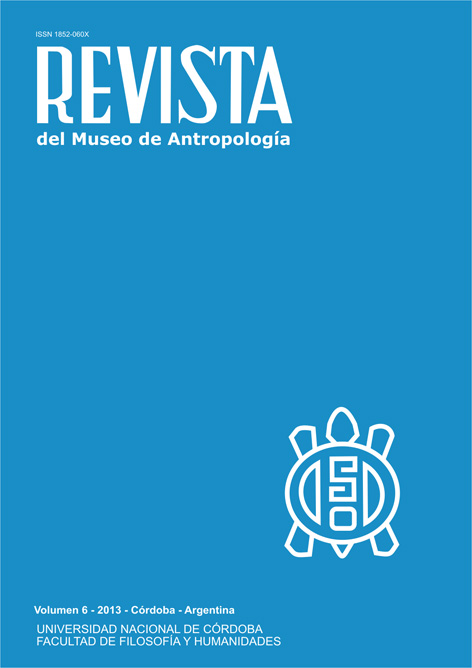The likelihood and pragmatism in the accounts of the press on politics
DOI:
https://doi.org/10.31048/1852.4826.v6.n1.5512Keywords:
press and politics, political rhetoric, political pragmatism, accounts and politics, peronismoAbstract
In my present doctoral research on emergency and fall of leaders of the Justicialista Party of Salta (Argentina), I observe accounts of the graphic press that describe events of the political dynamics taking into descriptions gossip, rumors and confidences obtained from interactions mediated by the trust and intimacy with leaders, civil servants and workers close to local leaders. Although those rumours and confidences cannot be verified, the credibility of the information, for writers and journalists, is also supported by trust. However, the analysis and interpretation of the information construct veracity from the verisimilitude . The proximity of the description with that dominant view that considers politics as an activity devoid of values, whose pragmatism contrasts with the politics of ideals, allows to achieve such verisimilitude. Thus, the most effective descriptions in the valuation of the political calcullation, strategy and interests of those who are involved - with evidences of political gestures in solidarity to that estimate - would be the closest to the ‘real’ facts. However, this adjustments of interests over values offers a direction when considering these accounts as sources, because it overshadows those moral orientations which, as other studies indicate, would be very spread among the leaders of peronismo.Downloads
References
Anderson, B. 1993 Comunidades Imaginadas. Reflexiones sobre el origen y la difusión del nacionalismo. México: Fondo de Cultura Económica.pp.315
Balbi, F. A. 2007 De leales, desleales y traidores. Valor moral y concepción de política en el peronismo. Buenos Aires: Antropofagia. pp.444
Balbi, F. A. 2010 “Partido, Movimiento y conducción. Orientaciones cognitivas y prácticas políticas en el peronismo”. Actas de la X Jornada de Historia Política, Mar del Plata, 2010, número 1. Edición en CD-ROM ISSN 1853- 5380
Bajtin, M. 1982. Estética de la creación verbal. México: Siglo XXI.
Besnier, N. 2009. Gossip and the Everyday production of politics. Honolulu: University of Hawai’i Press Briquet, J.L. 1994. Communiquer en actes. Prescriptions de role et exercice quotidien du métier politique, Politix 28: 16-26.
Briquet, J.L. y P. Garraud. 2001 Introduction En: Briquet, Jean-Louis et Philippe Garraud (dir.) Juger la politique. Entreprises et entrepreneurs critiques de la politique. Rennes: les Pur Presses Universitaires Rennes.pp.13-21
Damamme, D.. 1999. Professionnel de la politique, un métier peu avouable, En Offerlé, Michel La profession politique XIX-XX siècles. Paris: Belin.pp.37-67
Emery, H. C. 1915 What is Realpolitik? International Journal of Ethic 25(4): 448-468
Frederic, S. y G. Soprano. 2008. Panorama temático: antropología y política en la Argentina. Estudios de Antropología Social 1(1): 132-190. Centro de Antropología Social del Instituto de Desarrollo Económico y Social. Buenos Aires.
Gaxie, D. 2003. Une construction médiatique du spectacle politique? Réalité et limites de la contribution des médias au développement des perceptions négatives du politique In Lagroye, Jacques La politisation. Paris: Belin.pp.325-356
Gluckman, M. 1963 Gossip and Scandal. Current Anthropology 4(3): 307-316.
Guggenheimand, M. y J. Potthast (2012) Symmetrical twins: On the relationship between Actor-Network theory and the sociology of critical capacities European Journal of Social Theory 15: 157-178
Latour, B. 2008. Reensamblar lo social. Una introducción a la teoría del actor-red. Buenos Aires: Manantial.pp.390
Li, X. 2011 Whispering: the murmur of power in a lo-fi world. En: Media, Culture & Society, pp.3-19.
Maidana, F. 2010 El ascenso y el descenso de los dirigentes del Partido Justicialista (P.J.) en los cargos gubernamentales, 1995-2005. Relaciones entre políticos y la política con J.C. Romero. Salta: Editorial de la Universidad Nacional de Salta.pp.130
Nader, L. 1972. Up the Anthropologist – Perspectives gained from studying up In Hymes Dell H. (ed) Reinventing Anthropology. New York: Pantheon Books 284-311
Neiburg, F 2003 Intimidad y esfera pública. Política y cultura en el espacio nacional argentino. Desarrollo Económico 43 8170): 287-303
Parkin, D 1984 Political language. Annual Review of Anthropology 13: 345-65
Perice, G. A. 1997. Rumors and Politics in Haiti. Anthropological Quarterly 70(1): 1-10
Shenav, S. R. 2006 Political Narratives and Political Reality. International Political Science Review, 27(3): 245-262
Rodríguez, D. A. 2005. Nuevas formas políticas y cambios en el Peronismo. VII Congreso Nacional de Ciencia Política “Agendas Regionales en Conflicto” http://www.saap.org.ar/esp/docscongresos/congresossaap/VII/programa/paneles/c/c3/rodriguez.pdf
Van Vleet. 2003. Partial Theories: On Gossip, Envy, and Ethnography in the Andes. Ethnography 4:491-519.
Watkins, S. C. y A. Swidler. 2009. Hersay Ethnography: Conversational Journals as a Method for studying Culture in Action.
Poetics, 37(2): 162-184.
Downloads
Published
How to Cite
Issue
Section
License
Those authors who have publications with this Journalaccept the following terms:
a. Authors will retain their copyrights and guarantee the journal the right of first publication of their work, which will be simultaneously subject to the Creative Commons Attribution License (Licencia de reconocimiento de Creative Commons) that allows third parties to share the work as long as its author and his first publication in this journal.
b. Authors may adopt other non-exclusive licensing agreements for the distribution of the version of the published work (eg, deposit it in an institutional electronic file or publish it in a monographic volume) provided that the initial publication in this journal is indicated.
c. Authors are allowed and recommended to disseminate their work on the Internet (eg in institutional telematic archives or on their website) before and during the submission process, which can lead to interesting exchanges and increase citations of the published work. (See The Effect of Open Access - El efecto del acceso abierto)












